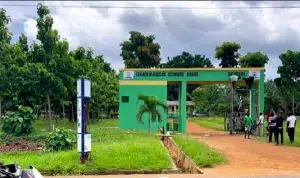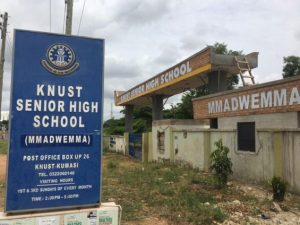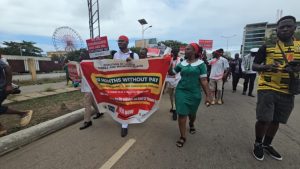Ghana’s Cocoa Industry On The Brink Of Extinction If Galamsey Is Not Rooted Out – IERPP

The Institute of Economic Research and Public Policy, (IERPP), has conducted painstaking research into the dangers posed to the country’s cocoa sector if illegal mining activities are not tackled and rooted out in the next ten years.
Ghana’s cocoa industry contributes 15% to the country’s Gross Domestic Product as it generates substantial foreign exchange earnings year in, year out. Ghana has over 800,000 smallholder cocoa farmers, with sources citing figures between 800,000 and 850,000 farm families and over one million farmers employed in the sector.
This number represents the core group directly involved in cultivating cocoa, forming the backbone of Ghana’s agricultural economy and supporting livelihoods through related commercial, industrial, and service sectors.
Economically, cocoa is a major driver of Ghana’s GDP and its second-largest source of foreign exchange earnings, second only to mineral exports. In 2023, cocoa exports generated over $2 billion in revenue for Ghana.
As already posited, the cocoa sector is a primary source of income for more than 800,000 smallholder farm families, providing them with financial stability and enabling them to invest in education and healthcare. Ghana aims to increase domestic processing of cocoa beans to add more value to exports, creating jobs, and boosting export revenues.
Ghana, though a leading global producer, supplying around 20% of the world’s cocoa, the industry faces challenges, disease outbreaks, and smuggling, which have affected production levels in recent years, the largest risk the industry faces is land degradation from illegal mining activities.
Illegal mining activities, popularly called Galamsey, have been plaguing our natural environment including water bodies and forests. Cocoa lands have fallen prey to illegal mining activities due to the lucrativeness of the mining sector.
IERPP has identified vast lands and acreages of cocoa farms being taken over by illegal miners. Some cocoa farmers are clearing their trees to allow galamsey on their land. The repercussions of these cocoa trees being felled down, lands being sold to illegal miners for their activities cannot be underestimated.
The over 800,000 direct farmers, the millions who are indirect beneficiaries of the sector, the 10,000 employees of COCOBOD, the foreign exchange earnings accrued to the economy will all be gone if the government does not step up the fight against illegal mining. We must also not lose sight of the health hazards associated with these illegal mining activities and how much the state spends on the health of the affected communities and their people.
The Institute of Economic Research and Public Policy, IERPP, calls on the Mahama Government to adopt pragmatic measures in the fight against galamsey. We urge all political parties to work with the current administration to combat illegal mining, protect the cocoa industry, safeguard citizens, and strengthen the economy through cocoa sector revenues.
Dr. Frank Bannor
Development Economist & Senior Research Fellow, IERPP








